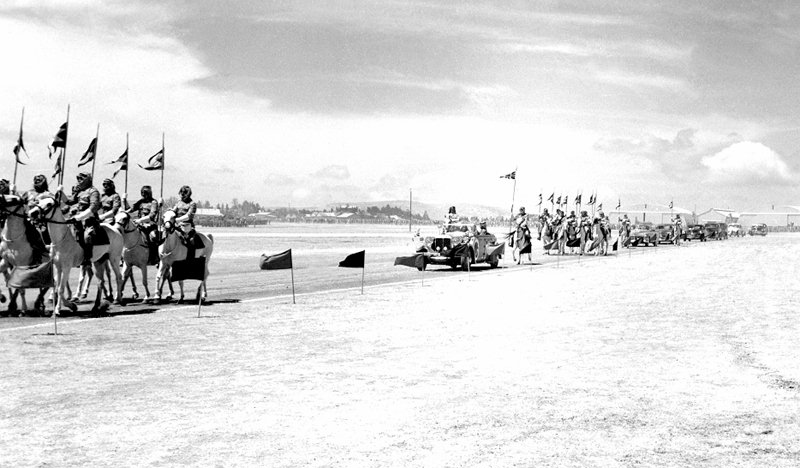A meeting took place in Cairo between Lord Kitchener and Prince Abdullah bin Al Hussein, who was on a visit to the Khedive there, and Lord Kitchener explained that His British Majesty's government is ready to provide any assistance to Sharif Hussein in any Arab movement under his leadership intended for independence and the formation of an Arab state, Prince Abdullah conveyed these ideas to his father and coincided with Prince Faisal bin Hussein's contacts with the Arab liberals in Damascus and Beirut, who met at a conference known as the "Damascus Conference" in 1915, which established the famous Damascus Charter, which drew the borders of the Arab state, and approved the orientation of Sharif Al Hussein to lead the revolt and declare the Arab Renaissance because of his historical and religious status, his service to the holy places, and his honorable lineage from the Prophet (PBUH). Prince Faisal bin Al Hussein conveyed the decisions of the Damascus conference to his father, and approved them, and began his correspondence with Sir McMahon, the British High Commissioner in Cairo, and the letters amounted to ten, five in each direction, confirming three points: • Full independence of the Arab state within the drawn borders according to the correspondence and the Damascus Charter of 1915. • No Arab land shall be excluded from the drawn borders except For Aden, the British colony since 1939, which will be the subject of future negotiations • Full military cooperation and the provision of weapons and aid to the Arab Army so that it can perform its tasks and duties.
The Arabs began preparing for the day of the Great Arab Revolt by preparing to organize the army, and to communicate with clans and citizens wherever they are, until May 6th 1916, when the Turkish authorities executed two groups of Arab free men in both Al-Marja Square in Damascus and Martyrs Square in Beirut, and this incident shook the feelings of the Arabs, and it was the straw that broke the camel's back, it was an incentive for Sharif Hussein bin Ali to start work immediately by declaring the revolt on the Turks, and Prince Faisal received the news of the executions in Damascus, he shouted his famous shout (Oh Arabs death is delight) and sent his father a short message saying "Send the blonde mare", which was a secret term that meant the beginning of the declaration of the Great Arab Revolt.

